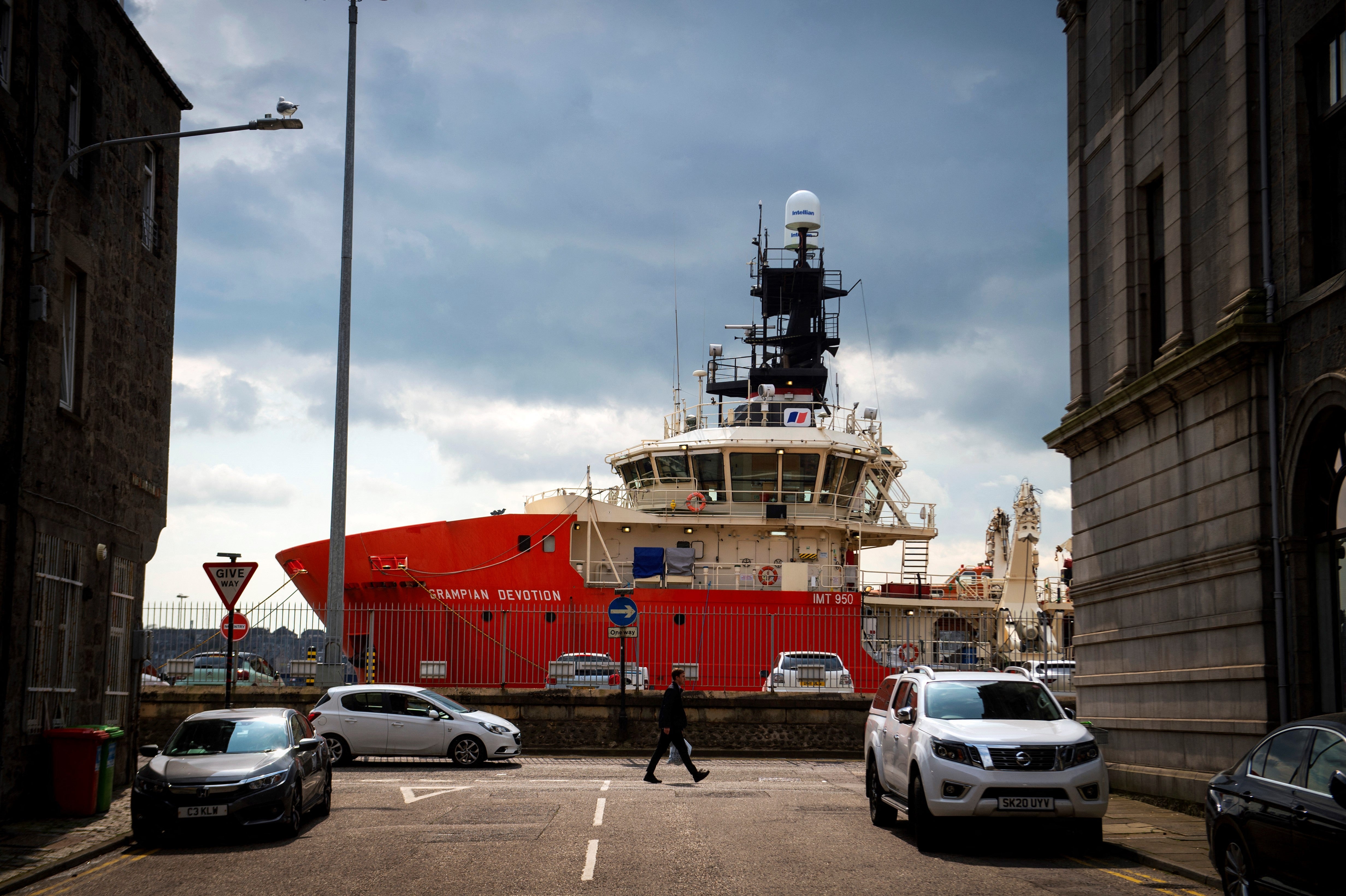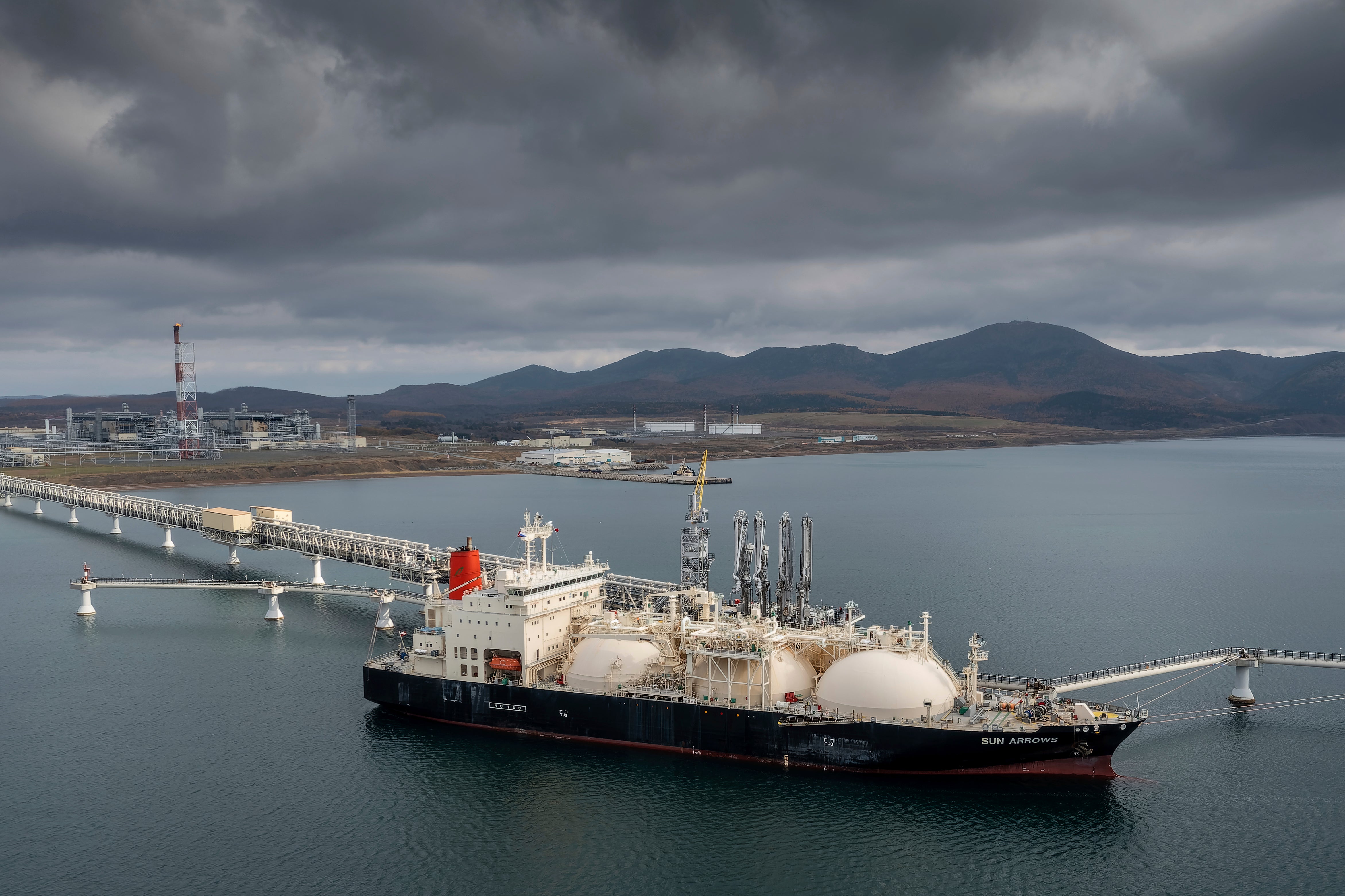No evidence fracking will have impact on price of gas, government adviser says
Exclusive: Lord Deben said the UK “couldn’t possibly” produce enough gas from the North Sea and fracking together to shift the price “in any real way”

There is no evidence that if the UK maximised fracking and North Sea extraction that it would have a meaningful impact on the international price of gas, a government adviser has said.
The UK “couldn’t possibly” produce enough gas from the North Sea and fracking together to shift the price “in any real way,” Lord Deben, Chairman of the independent Climate Change Committee, which advises the government on tackling the climate crisis, told The Independent.
In any case, he said, it presupposes that we can frack gas “commercially, sensibly in Britain” which has “so far has not been seen” and fundamentally doing so would not help tackle the cost of living crisis because the gas will be set at international prices.
“So it seems not a sensible thing to say ‘because gas prices are high we must use more gas’” he added.
His remarks come after Liz Truss’s new government announced an emergency energy package in a bid to bolster Britain’s energy security and tackle the gas price crisis, which included lifting the ban on fracking and expanding drilling for oil and gas in the North Sea.
Economies re-emerging after the coronavirus pandemic combined with Russia’s invasion of Ukraine and its decision to severely limit supplies of natural gas to the continent have seen global gas prices spike in recent months.
Lord Deben said the answer to tackling the cost of living crisis was – as Chancellor Kwasi Kwarteng has previously pointed out – to “get as fast onto renewables as we possibly can” and to boost energy efficiency to cut demand.
“The two things are synonymous – fighting climate change and fighting the cost of living crisis are the same thing,” he said.
As for energy security, Lord Deben said Russia’s war in Ukraine meant the government is in a position where it is trying to protect its energy supplies in the short term at the same time as fighting climate change.
So far, he said, the government hadn’t done anything to undermine its commitments to tackling the climate crisis by reaching net zero but that he was watching “carefully”.
“If in fact it starts to say things which do undermine our battle for climate change, I’ll be the first to tell it,” he said.
His remarks come after the government’s former chief scientific adviser told The Independent last week that Liz Truss’s energy plans show the UK has effectively abandoned net zero targets just three years after its world-leading commitment to cutting emissions.
The drive for more oil and gas production was “completely at odds” with the UK’s legally binding net zero target, said Sir David King, head of the Climate Crisis Advisory Group, who was chief scientific adviser to the government between 2000 and 2007.
The Climate Change Committee has advised that the extraction of oil and gas from the North Sea and fracking can go ahead as long as certain conditions are met. In the case of the North Sea, the committee has said it would support a tighter limit on oil and gas production, with stringent tests and a presumption against exploration, but that ultimately any new decision must be taken by ministers.

“You have to do it in the most environmentally friendly way,” said Lord Deben.
The problem with this is that Shell and other companies operating in the North Sea have failed to fully meet the environmental standards that the committee has said have to be introduced, he added.
The Climate Change Committee has recommended that emissions from offshore fossil fuel production be reduced by 68 per cent from 2018 levels by 2030.
However, the North Sea Transition Deal between the government and the offshore oil and gas sector and the government’s net zero strategy committed to a 50 per cent reduction in emissions – a target the committee has previously described as “insufficient”.
The bosses of Shell and BP among others have since refused to commit to reduce their greenhouse gas emissions by 68 per cent in line with the recommendation of the watchdog.

Instead, Shell said it was “happy to aspire” to more than a 68 per cent cut, while BP said that it would “try to see how quickly we can get there.”
“I’m not prepared to accept the further exploitation of the North Sea unless it is under those terms,” he said, referring to the committee’s environmental demands. “Because under those terms at least you can start by saying the gas that we’re going to use will in fact be produced with less damage to the environment, less damage as far as climate change is concerned, than gas produced elsewhere and imported.”
On fracking, the Climate Change Committee has said the practice shouldn’t go ahead unless it meets three tests: emissions must be strictly limited, overall gas consumption must remain in line with UK climate goals and emissions must be accommodated within the UK’s path to net zero.

Lord Deben said those requirements remain in place and the present government has not changed them. Fracking has to meet proper environmental standards because going ahead with it doesn’t set the best example, he said.
Russia’s war in Ukraine may mean that setting this example may no longer be possible, he added, “but that is for the government to decide”.
A spokesperson for Shell said: “Since 2018, Shell has reduced its operational emissions in the North Sea by more than a quarter and fully supports industry targets to further drive down emissions from offshore platforms.”
A Government spokesperson said: “Making the most of our own gas resources makes us less dependent on imports and helps maintain the security of the UK’s energy supply in both the short and long-term.
“Drawing on lessons from around the world, we will make sure it is done as safely as possible and where there is local support.”
The Independent has contacted BP for comment.






Join our commenting forum
Join thought-provoking conversations, follow other Independent readers and see their replies
Comments